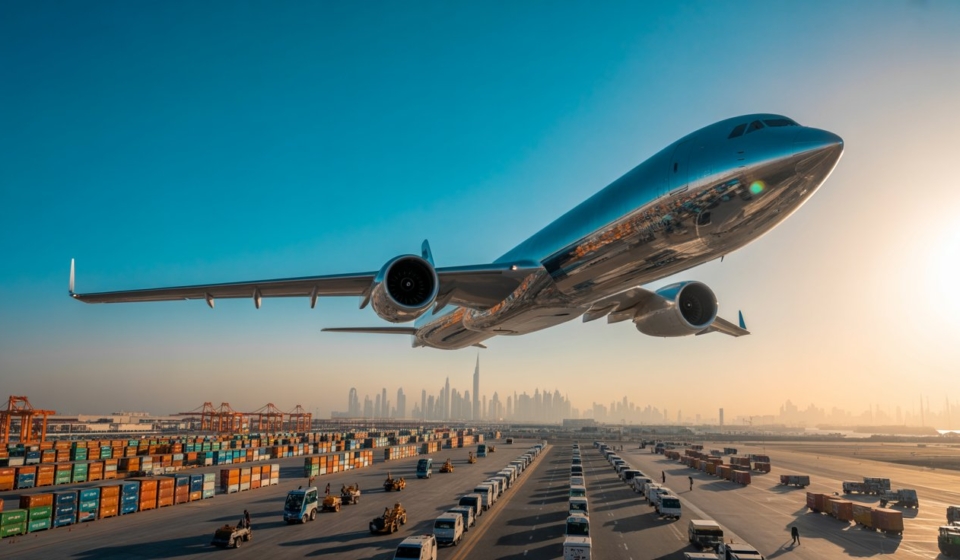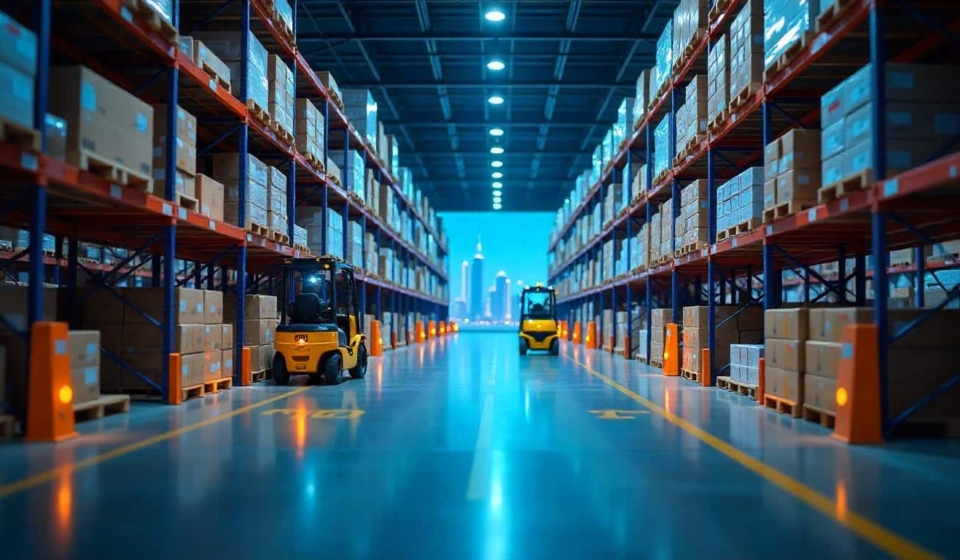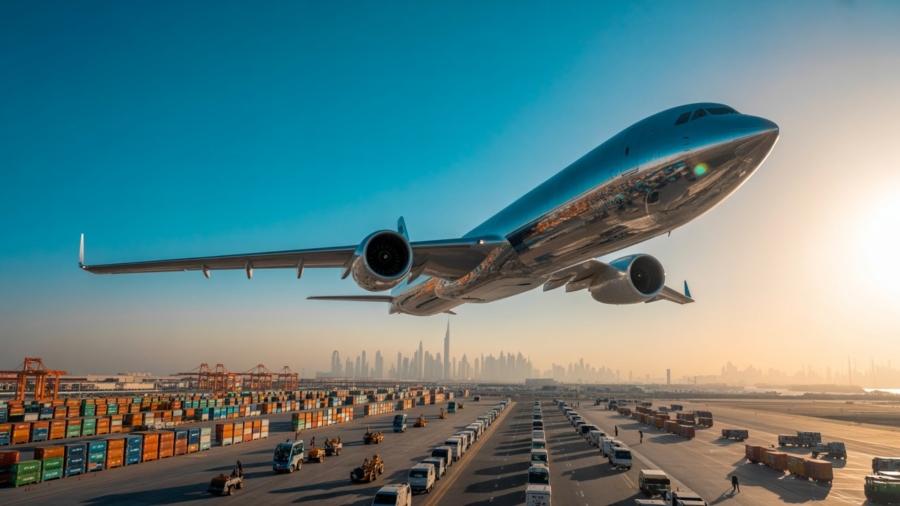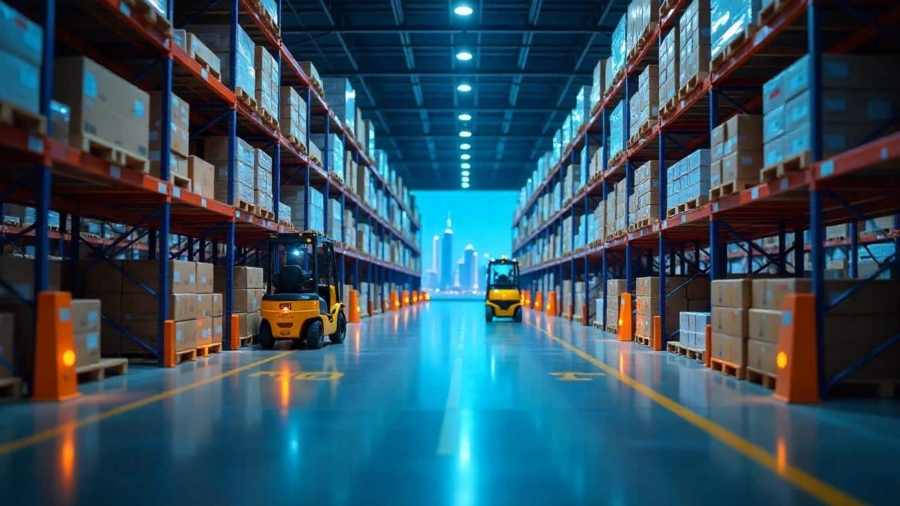Navigating Dubai’s customs duties and import taxes can be challenging without expert guidance. KGRN Shipping LLC helps importers and traders clearly understand UAE customs regulations, duty structures, and tax requirements. As Dubai strengthens its role as a global logistics hub, staying compliant with customs rules is crucial to avoid delays, reduce risks, and manage import costs efficiently. This guide explains everything you need to know to make informed import decisions with confidence.
Key Takeaways
- Dubai applies standard customs duties along with VAT on imported goods.
- Proper product classification and customs valuation are critical to avoid penalties.
- Certain imports, free zone movements, and re-exports may qualify for duty exemptions or reductions.
- Accurate documentation helps prevent customs delays and additional costs.
- Working with experienced partners like KGRN Shipping LLC ensures compliance and smoother customs clearance.
Understanding Dubai’s Customs Framework
Dubai’s customs system is governed by the Dubai Customs Service and aligns with the Gulf Cooperation Council (GCC) Common Customs Law. This framework regulates the flow of goods, ensures compliance, and supports the UAE’s economy by balancing trade facilitation with revenue generation. Importers must navigate customs duties, Value Added Tax (VAT), and specific documentation requirements to clear goods efficiently.
Why Customs Compliance Matters
Non-compliance with Dubai’s customs regulations can lead to delays, penalties, or even shipment detentions. For instance, failing to provide accurate documentation or misclassifying goods using Harmonized System (HS) codes can result in fines or additional duties. Understanding these regulations helps businesses avoid costly mistakes and maintain competitive pricing.
Customs Duties in Dubai: Rates and Calculations
Dubai imposes a standard customs duty rate of 5% on the Cost, Insurance, and Freight (CIF) value of most imported goods. However, rates vary depending on the product type, with some goods attracting higher tariffs and others qualifying for exemptions.
How to Calculate Customs Duties
The CIF value includes:
- Cost: The price paid for the goods.
- Insurance: The cost of insuring the goods during transit.
- Freight: The cost of transporting the goods to Dubai.
Formula for Customs Duty:
Customs Duty = CIF Value × Duty Rate
Example Calculation:
Suppose you import electronics valued at AED 10,000, with AED 500 in insurance and AED 1,000 in freight costs.
- CIF Value = AED 10,000 + AED 500 + AED 1,000 = AED 11,500
- Customs Duty (5%) = AED 11,500 × 0.05 = AED 575
Special Tariff Rates
Certain goods face higher duties due to public health or regulatory policies:
- Alcohol: 50% of CIF value.
- Tobacco and e-cigarettes: 100% of CIF value.
- Energy drinks: 100% of CIF value.
VAT on Imports
In addition to customs duties, a 5% VAT is applied to the total value of imported goods, which includes the CIF value plus the customs duty.
VAT Calculation Example:
Using the previous example:
- CIF Value = AED 11,500
- Customs Duty = AED 575
- Total Value for VAT = AED 11,500 + AED 575 = AED 12,075
- VAT (5%) = AED 12,075 × 0.05 = AED 603.75
Total Import Cost:
- Customs Duty + VAT = AED 575 + AED 603.75 = AED 1,178.75
Tariff Rates Table
| Product Category | Customs Duty Rate | VAT Rate |
| General Goods (e.g., electronics, clothing) | 5% of CIF | 5% |
| Alcohol | 50% of CIF | 5% |
| Tobacco & E-cigarettes | 100% of CIF | 5% |
| Essential Items (e.g., fresh produce, medical supplies) | 0% | 5% |
| Goods from FTA Countries | 0%–5% (varies) | 5% |
Exemptions and Free Trade Zones
Dubai offers exemptions and incentives to facilitate trade, particularly in its Free Trade Zones (FTZs) and for goods from countries with Free Trade Agreements (FTAs).
Duty-Free Imports
The following categories are exempt from customs duties:
- Essential goods: Fresh produce, grains, livestock, meat, seafood, and medical supplies.
- Goods from GCC countries: Must be accompanied by a Certificate of Origin.
- Goods from FTA countries: Imports from countries like India, Israel, or Indonesia may qualify for reduced or zero duties.
- Free Trade Zones: Goods imported into FTZs (e.g., Jebel Ali Free Zone) are exempt from duties until they enter the UAE mainland.
Temporary Imports and Re-Exports
Goods imported for re-export or temporary use (e.g., for exhibitions or repairs) may qualify for duty exemptions. Importers must provide a deposit or guarantee equivalent to the applicable duty, which is refunded upon re-export. Use the “Import for Re-Export to Local from ROW” declaration type for such transactions.
Example: A company imports machinery worth AED 50,000 for a trade show in Dubai. By declaring it for temporary use, they avoid the AED 2,500 duty (5% of AED 50,000), provided the machinery is re-exported within the stipulated period.
Documentation Requirements
Accurate and complete documentation is critical for customs clearance. Missing or incorrect documents can delay shipments or incur penalties.
Essential Documents
- Customs Declaration Form: Details the goods, value, and HS code.
- Commercial Invoice: Specifies the goods, quantity, and value.
- Certificate of Origin: Verifies the country of manufacture for duty exemptions.
- Bill of Lading/Airway Bill: Proves shipment details.
- Packing List: Lists the contents and packaging details.
- Import Permit: Required for restricted items like pharmaceuticals or food.
- VAT Registration Certificate: For VAT-registered businesses claiming input tax credits.
- Insurance Certificate: Proves coverage during transit.
Translation Requirements
Documents in languages other than Arabic or English may require certified translations, especially for regulatory compliance.
Submission Deadlines
As per Customs Notice No. 4 of 2023, customs declarations and supporting documents must be submitted within 30 days of filing. Late submissions incur a fine of AED 5 per day, up to a maximum of AED 300 per declaration.
Customs Procedures in Dubai
Dub Customs Clearance Process
- Register with Dubai Customs: Obtain a customs code via the Dubai Trade Portal.
- Submit Import Declaration: Provide details of the goods, including HS code and CIF value.
- Document Verification: Dubai Customs reviews the declaration and supporting documents.
- Duty and VAT Payment: Pay via the Dubai Trade Portal or at customs offices.
- Goods Inspection: Physical or risk-based inspections may occur.
- Release of Goods: Once cleared, goods are released for distribution or storage.
Using Customs Brokers
Many importers delegate clearance to licensed customs brokers, who require a Power of Attorney. Brokers streamline compliance, handle documentation, and leverage digital platforms like the Dubai Trade Portal for efficient processing.
Digital Tools
Dubai Customs offers online portals and apps for:
- Electronic shipment declarations
- Real-time shipment tracking
- Secure duty and VAT payments
Compliance Requirements
Compliance with Dubai’s customs regulations is non-negotiable. Key requirements include:
- Accurate HS Code Classification: Misclassification can lead to incorrect duty assessments.
- Recordkeeping: Maintain customs records for 5 years to support audits by Dubai Customs or the Federal Tax Authority (FTA).
- Prohibited and Restricted Items: Items like narcotics, certain chemicals, or non-halal food products are banned or require permits.
- Food and Beverage Imports: Must comply with Ministry of Climate Change and Environment (MOCCAE) and Emirates Authority for Standardization and Metrology (ESMA) standards, including halal certification and labeling.
Example: A food importer bringing in dairy products must ensure compliance with MOCCAE’s sanitary standards and ESMA’s labeling requirements, such as nutritional information and expiration dates.
Recent Updates to Dubai’s Customs Regulations
Dubai frequently updates its customs policies to align with global trade trends. Notable changes include:
- Threshold for Duty-Free Shipments: Effective March 1, 2023, the duty-free threshold for consignments was reinstated to AED 980 (approximately AED 266), reversing a temporary reduction to AED 300 in January 2023. Exceptions include tobacco, alcohol, and e-cigarettes, which are always dutiable.
- Extended Grace Period: The submission deadline for customs declarations and documents was extended to 30 days from 14 days in April 2023.
- COVID-19 Stimulus: A 20% reduction in customs duties on food commodities was introduced to support businesses post-COVID-19, lowering the effective rate to 4% for these goods.
Practical Tips for Importers
To optimize your import process and minimize costs:
- Leverage FTZs: Use Free Trade Zones for storage or re-export to defer duties.
- Verify HS Codes: Work with customs brokers to ensure accurate classifications.
- Use Digital Platforms: Streamline declarations and payments via the Dubai Trade Portal.
- Plan for VAT Recovery: VAT-registered businesses can claim input tax credits, reducing costs.
- Stay Updated: Monitor Dubai Customs’ notices for regulatory changes.
Key Takeaways
- Standard Duty Rate: 5% on CIF value for most goods, with higher rates for alcohol (50%) and tobacco (100%).
- VAT: 5% on the CIF value plus customs duty.
- Exemptions: Available for essential goods, FTZ imports, and FTA country products.
- Documentation: Accurate and timely submission is critical to avoid penalties.
- Compliance: Adhere to HS code accuracy, recordkeeping, and product-specific regulations.
- Digital Tools: Use Dubai Customs’ online platforms for efficiency.
FAQ: Common Importer Concerns
Q: What is the standard customs duty rate in Dubai?
A: The standard rate is 5% of the CIF value, though rates vary for specific goods like alcohol (50%) and tobacco (100%). Essential items like food and medical supplies are often exempt.
Q: How can I claim duty exemptions?
A: Provide a Certificate of Origin for goods from GCC or FTA countries, or import into an FTZ. Temporary imports for re-export also qualify with proper documentation.
Q: What happens if I misclassify my goods?
A: Misclassification can lead to incorrect duty assessments, fines, or shipment delays. Contact Dubai Customs for a review and provide supporting evidence to resolve discrepancies.
Q: Are there penalties for late document submission?
A: Yes, late submissions beyond the 30-day grace period incur a fine of AED 5 per day, up to AED 300 per declaration.
Q: Can I recover VAT on imports?
A: VAT-registered businesses can claim input tax credits, provided they maintain accurate records and comply with FTA regulations.
Q: How do Free Trade Zones benefit importers?
A: Goods imported into FTZs are exempt from duties until they enter the UAE mainland, offering flexibility for storage or re-export.
Conclusion
Navigating Dubai’s customs duties and taxes requires a clear understanding of tariff rates, exemptions, documentation, and compliance requirements. By leveraging digital tools, working with customs brokers, and staying informed about regulatory updates, importers can streamline operations and optimize costs. Whether you’re importing electronics, food, or luxury goods, aligning with Dubai’s customs framework ensures smooth clearance and supports your business’s success in this vibrant trade hub. For tailored guidance, consult professional services like KGRN Shipping UAE or visit the Dubai Trade Portal for real-time support.








